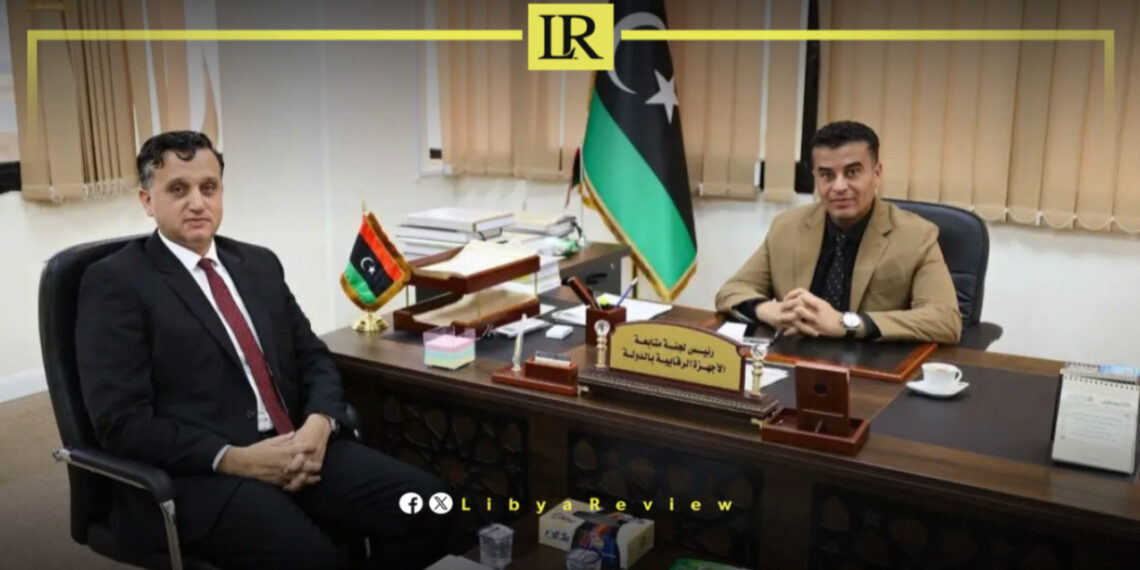The Chairman of the Parliamentary Committee for Oversight Bodies, Zayed Hadiya, held a meeting with the head of the Administrative Control Authority, Khaled Imraj Najm, at the House of Representatives headquarters in Benghazi.
During the meeting, the authority delivered its 2024 annual report, evaluating the performance of executive bodies under its supervision. Discussions also covered a draft law to amend the salaries of members and staff of the Administrative Control Authority, alongside other legislative proposals related to the authority’s functions.
The talks underscored the importance of strengthening oversight mechanisms and monitoring executive performance, in order to ensure effective regulatory practices, transparency, and efficiency in the management of public funds.
Libya has been in chaos since a NATO-backed uprising toppled longtime leader Muammar Gaddafi in 2011. The county has for years been split between rival administrations.
Libya’s economy, heavily reliant on oil, has suffered due to the ongoing conflict. The instability has led to fluctuations in oil production and prices, impacting the global oil market and Libya’s economy.
The conflict has led to a significant humanitarian crisis in Libya, with thousands of people killed, and many more displaced. Migrants and refugees using Libya as a transit point to Europe have also faced dire conditions.
The planned elections for December 2021 were delayed due to disagreements over election laws and the eligibility of certain candidates. This delay has raised concerns about the feasibility of a peaceful political transition.
Despite the ceasefire, security remains a significant concern with sporadic fighting and the presence of mercenaries and foreign fighters. The unification of the military and the removal of foreign forces are crucial challenges.


